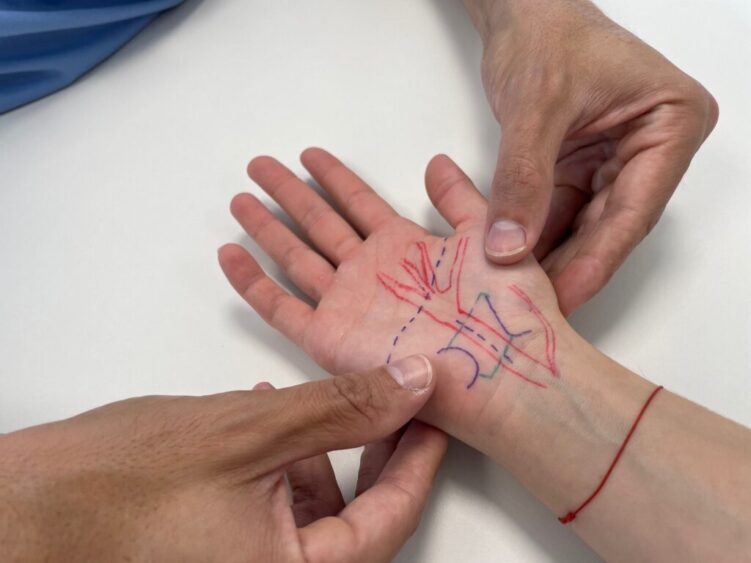Carpal tunnel syndrome: Causes and prevention

Carpal tunnel syndrome (CTS) is a common condition that affects the hand and wrist, causing pain, tingling, and weakness in the affected hand. As an orthopedic surgeon, I believe it is critical to raise awareness of CTS, as it can significantly affect daily quality of life and productivity.
In this article, we will elaborate on the definition, causes, and preventive measures of carpal tunnel syndrome. In addition, we will emphasize the importance of seeking professional help when symptoms of this condition occur.
- Repetitive hand movements: activities that involve repetitive hand movements, such as typing, using a computer mouse, or working on an assembly line, may contribute to CTS.
- Hand and wrist position: prolonged or uncomfortable hand and wrist positions, such as bending the wrist excessively or keeping it flexed for prolonged periods, can increase the risk of CTS.
- Disease: Certain medical conditions such as rheumatoid arthritis, diabetes, thyroid disorders, and obesity may increase the likelihood of developing carpal tunnel syndrome.
- Pregnancy: Hormonal changes during pregnancy can cause swelling and fluid retention, potentially compressing the median nerve.
- Ergonomic workstation: make sure your workstation is ergonomically designed, with adequate wrist support and neutral hand positions. Frequent breaks and stretching exercises can help reduce the risk of CTS.
- Maintain good posture: maintain proper posture when using the computer or performing tasks that involve hand movements to minimize strain on the wrists.
- Wrist exercises: perform regular strengthening and stretching exercises for the wrists to improve their flexibility and reduce the likelihood of nerve compression.
- Avoid repetitive stress: minimize repetitive movements and take frequent breaks during activities that stress the hands and wrists.
The vital role of professional counseling:
The onset of symptoms such as numbness, tingling, or weakness of the hand should never be ignored. Early diagnosis and intervention are essential to effectively treat carpal tunnel syndrome. Consulting a health professional, particularly a specialist such as an orthopedic surgeon or orthopedist, is of utmost importance. These can accurately diagnose the condition through physical examination, review of the medical history and possibly nerve conduction studies. Timely medical care can prevent disease progression, reduce pain, and improve overall hand function.
Conclusión sobre el síndrome del túnel carpiano
n conclusion, carpal tunnel syndrome is a common condition affecting the hand and wrist, mainly caused by repetitive movements, poor hand posture and underlying medical conditions. Preventive measures such as maintaining ergonomic work spaces, wrist exercises and avoiding repetitive stress can help reduce the risk of CTS. However, if you experience symptoms related to carpal tunnel syndrome, it is essential to seek professional help. Early intervention can alleviate symptoms and improve quality of life, ensuring that you can continue to perform daily activities with minimal discomfort and impairment.
(Note: This article is for informational purposes only and should not be considered a substitute for professional medical advice. If you suspect that you have carpal tunnel syndrome or any other condition, you should seek the advice of a qualified health care professional for accurate diagnosis and treatment).
Do you need an appointment with a professional doctor? By clicking here you can contact me where you can study your case.
